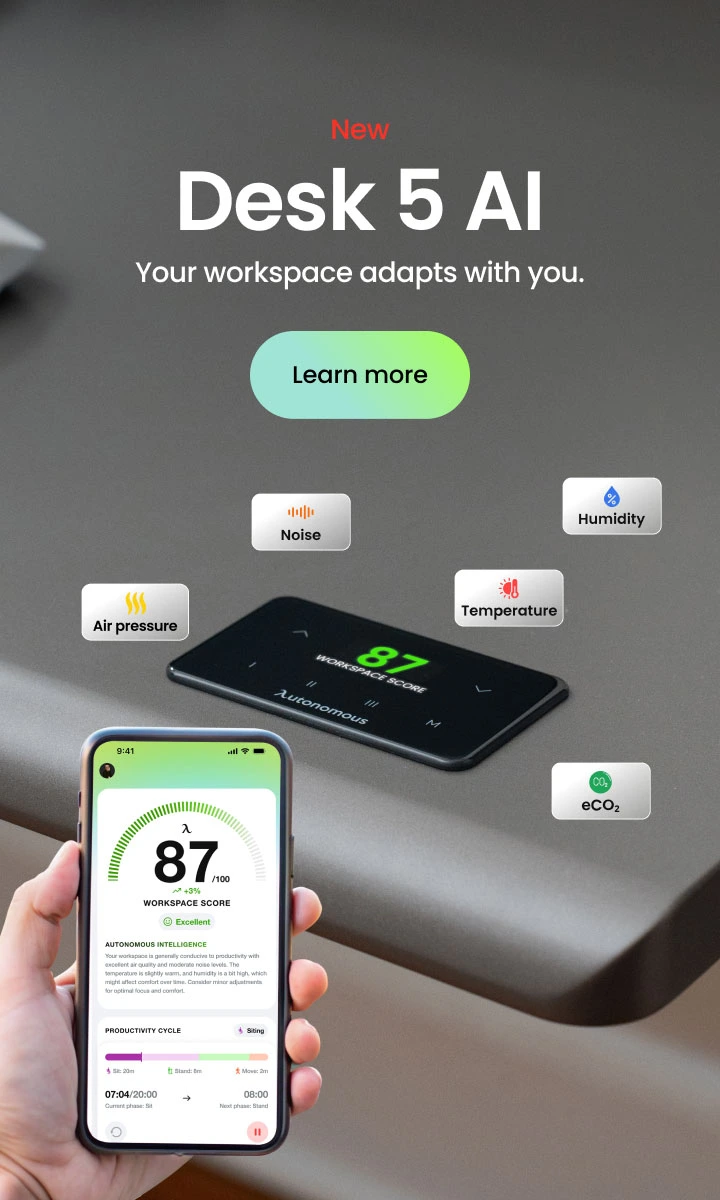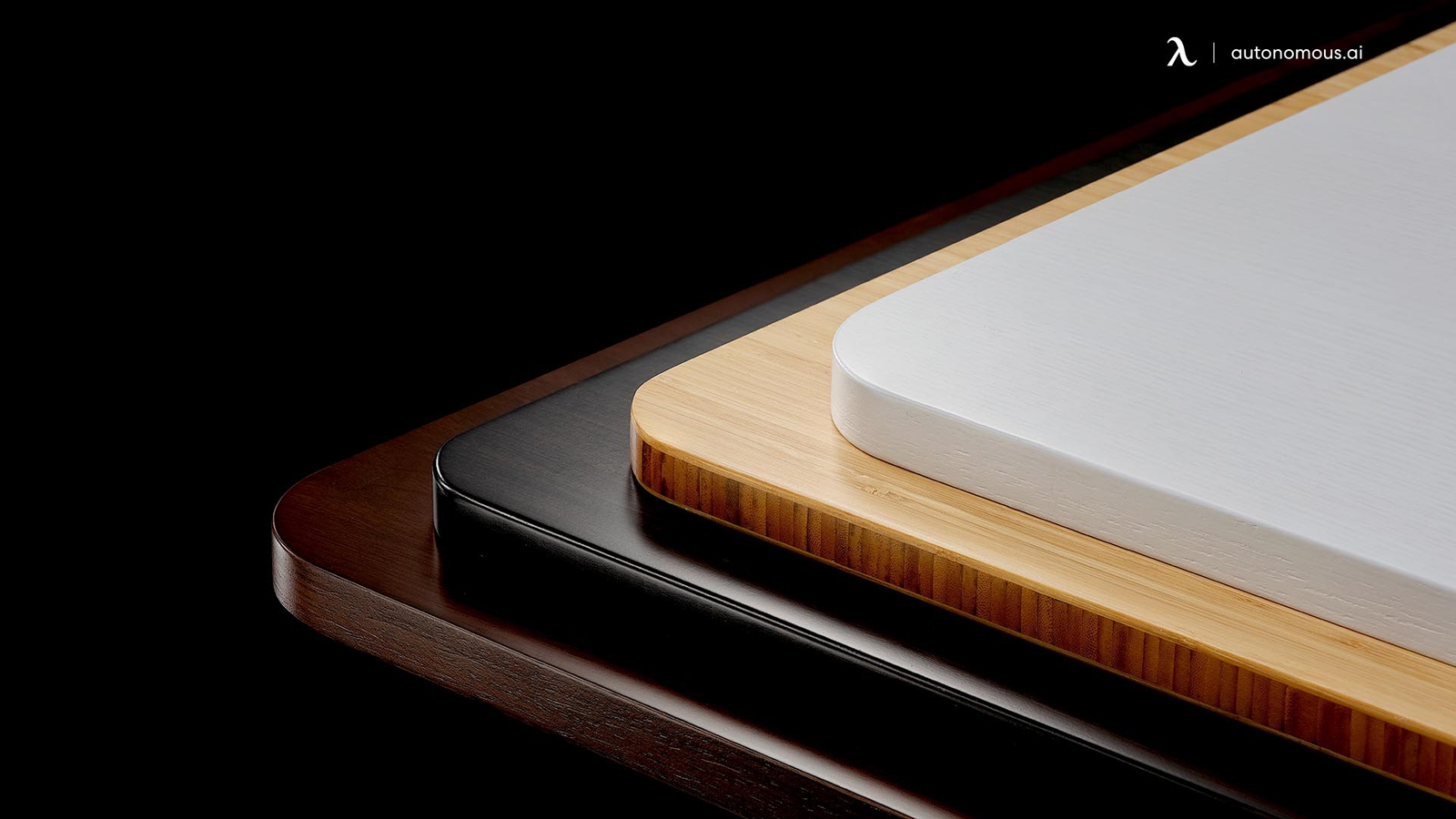
Table of Contents
Wood has been a natural material that has been used for creating stools, benches, tables and chairs, and more modern office furniture pieces. As civilization evolved, so have the uses of wood. With industrialization and modernism setting in, industries have experimented with using other materials like metals, glass, and more as a desktop. You could always use a custom wood desktop, which is either naturally polished or painted.
Wood as a Material
Being environmentally friendly is the first choice for most folks. However, wood is preferred for furniture as its benefits outweigh other materials when you consider the performance. Here are the top reasons to look for wood as a desktop for your office desk.
1. Feel-good factor
There’s even evidence that natural surfaces like wood make us feel good, improving our emotional state, reducing blood pressure and stress levels. That’s because humans have an innate attraction to natural surfaces and things like wood.
2. Tensile strength
The high tensile strength of wood desk tops makes it desirable in the construction industry, and wood supports itself much better than other materials.
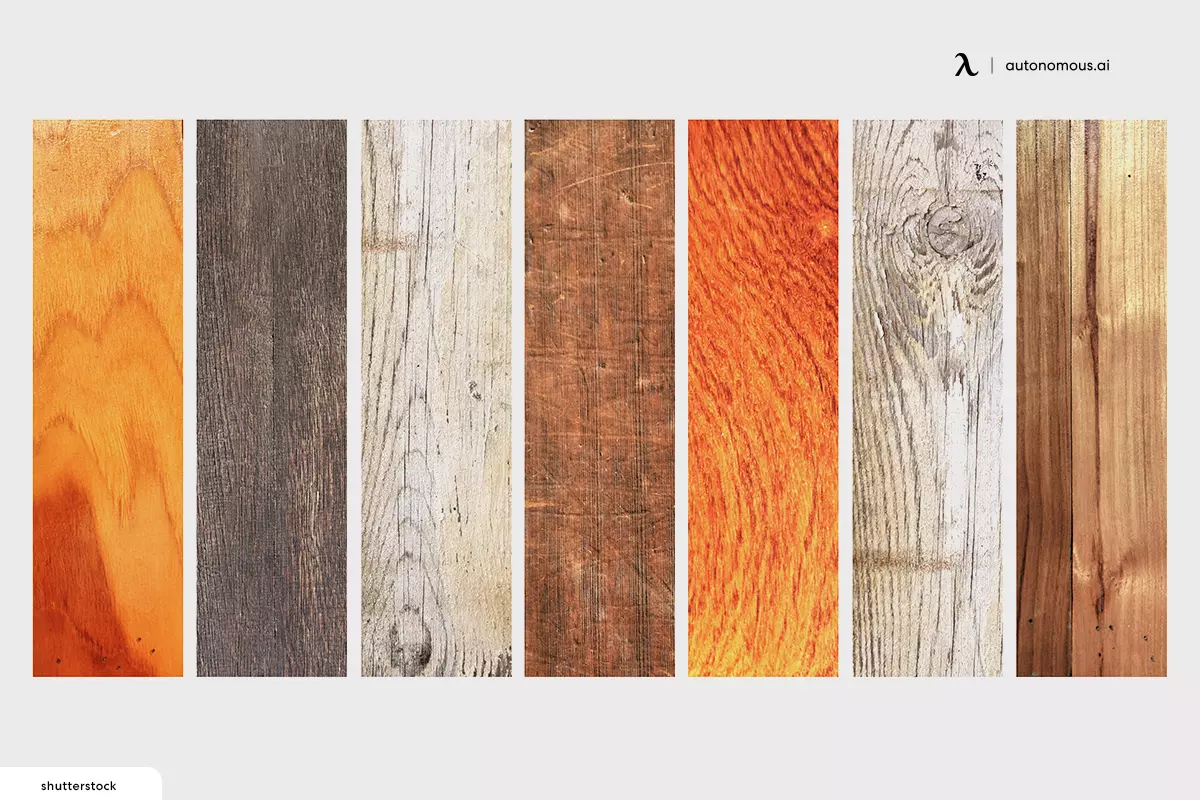
3. Resistance
Wood resists electricity and heat, giving the constructed structure cooling compared to cement or other materials.
4. Absorption
Wooden paneling in music studios and other places highlights that wood absorbs sound easily. It does not carry it forward, amplifying the sound. Its acoustic nature makes it a perfect selection for offices and a divider panel between noise and peace. You may find that many wooden panels are either naturally polished to finish or land up as a custom painted table top.
5. Aesthetics
Wood is available in a wide natural variety. This makes it an ideal choice for an incredible range of aesthetic settings. Balancing the acoustic and thermal needs of a room, wood desk tops come as a top choice.
Looking for useful tips on how to build a standing desk, don’t miss our blog!
Comparison Table of Types of Wood for Desk Tops
Different types of wood offer various benefits and aesthetics for desk tops. Here's a comparison table highlighting the key features of popular wood types used for desk tops:
| Wood Type | Durability | Appearance | Cost | Workability | Pros | Cons |
|---|---|---|---|---|---|---|
| Oak | Very durable | Prominent grain, light to medium brown | Moderate to high | Moderate | Strong and durable, attractive grain, resists wear | Heavy, can be expensive |
| Maple | Very durable | Light color, fine grain | Moderate to high | Moderate | Very hard and durable, smooth grain, lighter color | Can be difficult to stain evenly |
| Cherry | Moderately durable | Reddish-brown, rich patina over time | High | Easy | Beautiful rich color, ages well, smooth texture | Expensive, can darken significantly over time |
| Walnut | Moderately durable | Dark brown, straight grain | High | Moderate | Rich, dark color, smooth finish, attractive grain | Expensive, softer than other hardwoods |
| Birch | Durable | Light yellow to white, fine grain | Low to moderate | Easy | Affordable, smooth finish, good workability | Less durable than other hardwoods, prone to dents |
| Pine | Moderately durable | Light color, visible knots | Low | Easy | Affordable, easy to work with, rustic appearance | Softer wood, prone to scratches and dents |
| Mahogany | Very durable | Deep reddish-brown, fine grain | High | Moderate to difficult | Extremely durable, beautiful color, resists rot | Very expensive, can be difficult to work with |
| Bamboo | Very durable (technically a grass) | Light color, uniform texture | Moderate to high | Easy to moderate | Sustainable, strong, and eco-friendly, uniform appearance | Can be more expensive than some hardwoods, less traditional wood feel |
| Teak | Extremely durable | Golden to medium brown, straight grain | Very high | Moderate | Highly resistant to water and decay, beautiful appearance | Very expensive, can be oily and difficult to glue |
| Ash | Very durable | Light to medium brown, straight grain | Moderate to high | Moderate | Strong and shock-resistant, attractive grain | Can be difficult to work with, not as commonly available |
Types of Wood
Here are some common types of wood that are being used for wooden desktops.
1. MDF Wood
The usual question is should I go with mdf wood vs solid wood? This mdf wood uses hardwood/softwood residues mixed with wax and resin to hold it in place. This mixture is then set into large panels. High temperature and pressure are applied to these panels to help them bind together for durability. MDF wood is a perfect material for an office table top, given that you are not going to place heavy items more than 50 pounds or so as an indicative number.
An adjustable standing desk top made from MDF wood proves to be lighter to raise or lower. It is an excellent material as it is durable and long-lasting for use on a desktop. An mdf wood desk top is easy to clean and maintain. It is one of the best desk top materials in the market.
2. Maple
Looking to buy wood for desk top? One of the best choices is a Maple wood desk top. Why? It is hardwood and known for its toughness. Being dense amongst most other types of wood, it is quite sturdy. It is resistant to moisture and does not split easily. The unique pale color and a salt-type grain make it an interesting choice for a desktop. Affordable and easy to clean and maintain, Maple wood desk tops make a good choice for an office desktop.
2. Birch
While it is a dense wood, Birch is not a hardwood. The fine grains that are built-in give you a stable office table top. Ranked between maple, which is lighter, and walnut that is heavier, Birchwood makes desks and tabletops look appealing. It would be one of the best wood table tops in the world.
3. Walnut
Walnut is the sturdiest of woods and is rather heavy to move when used in furniture. The rather straight and open grains mixed with the rich dark color of walnut make it aesthetically appealing for a solid wood desk top. You will have different shades of walnut color owing to the walnut trees that grow around the world. It can withstand heavy usage easily.
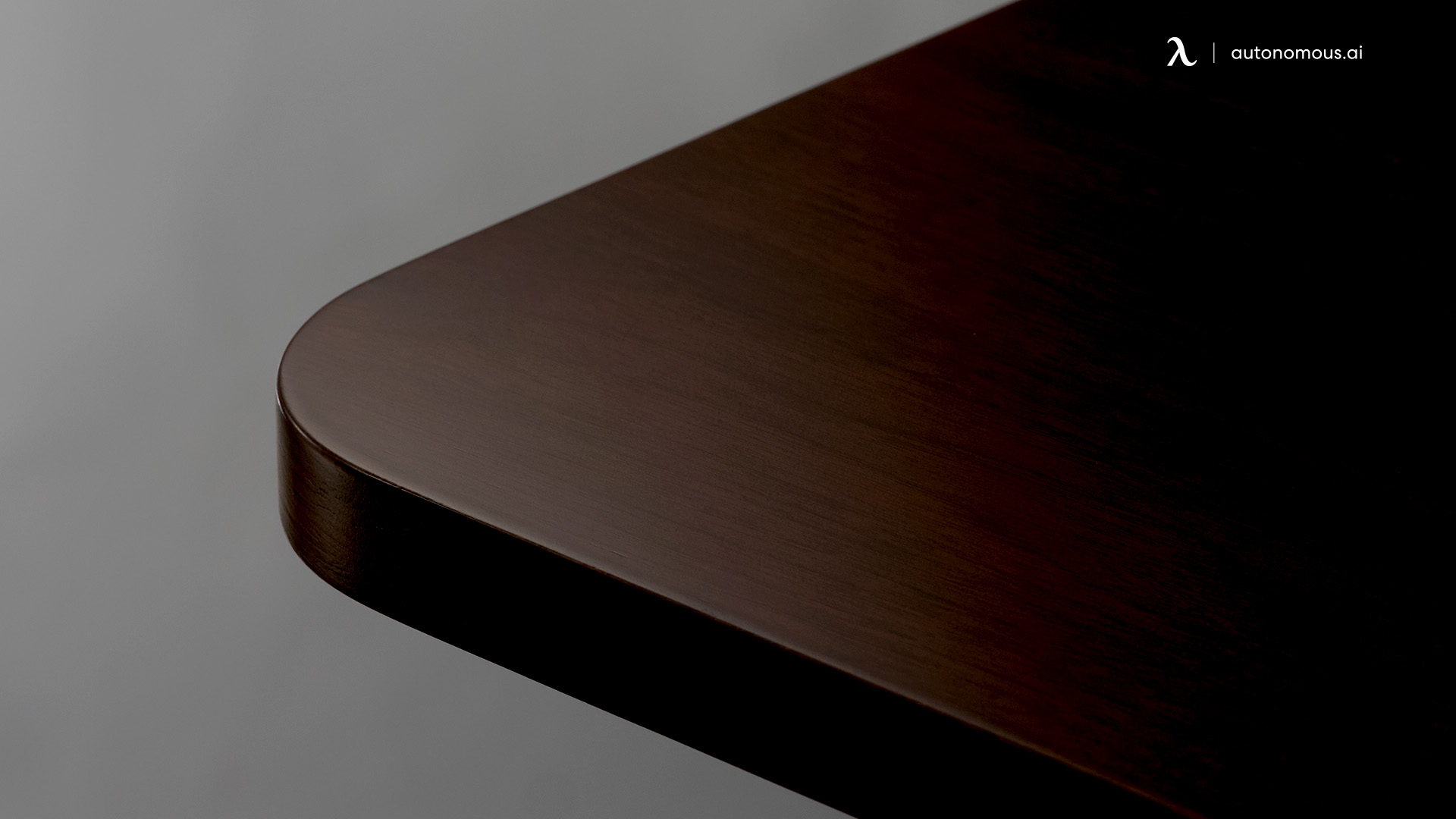
4. Oak
Oak is a classic wood and often found being used for tables and desks for centuries. Why? It is light, highly durable, and hard to use. Oak woodgrain has quite a natural look as the tree ages. The creamy sapwood of Oaktree is available in various hues of golden to medium brown colors. You can easily polish, paint or leave it natural. Being a hardwood, you can drive nails and screws, and they retain the fixtures for a long time.
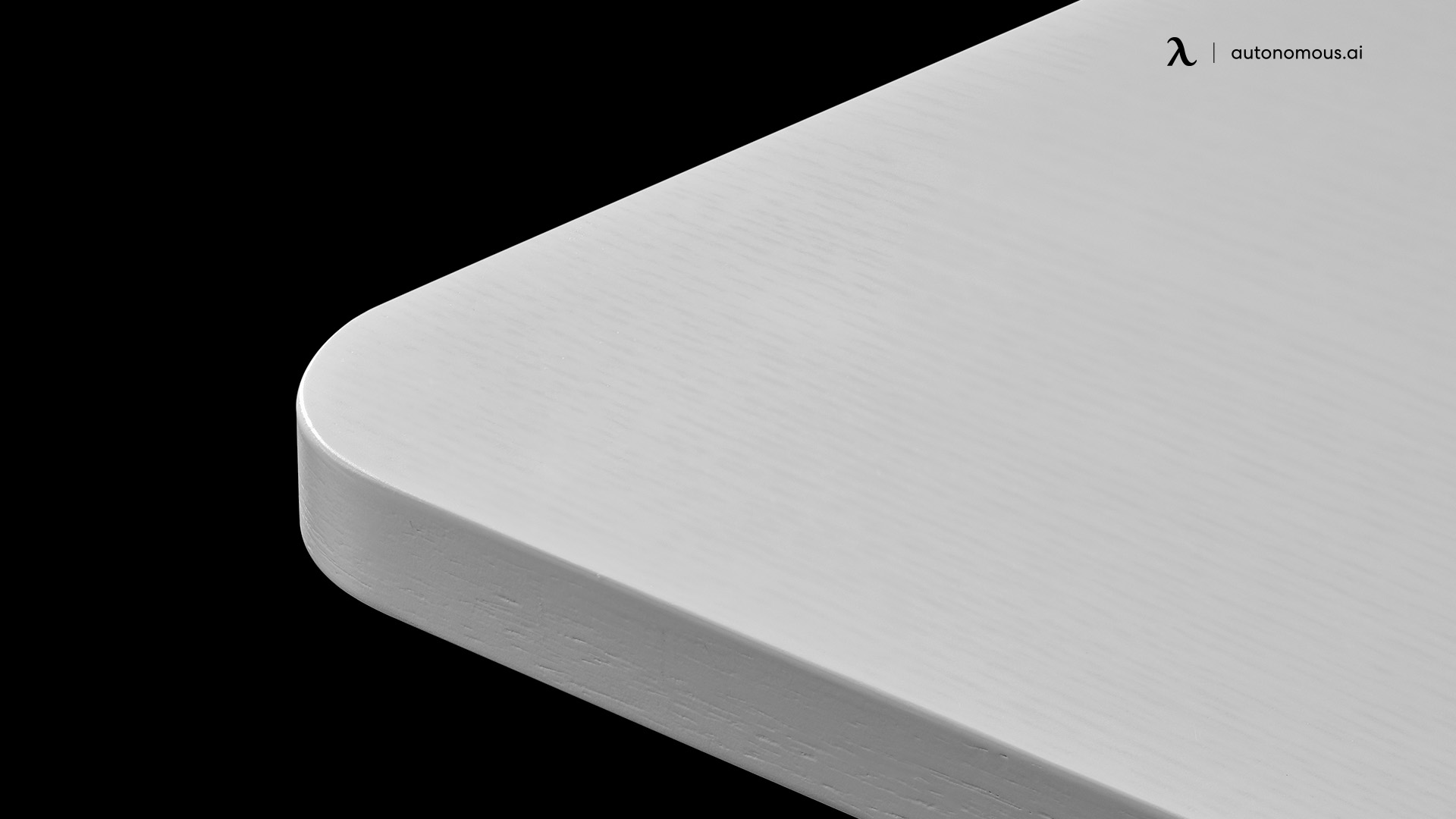
Choosing the Right Wood for Your Desktop
Well, surely a tough question for a novice. But if you are a wood lover, you will agree that there are three important pointers for anyone when buying a wood desk top.
1. Quality
Look for the following for quality:
Hardness: The ability of the wood to resist breaking when force is applied.
Density: The amount of wood available in a particular unit. It could be per meter cube (m3) or even in centimeters measured as cm3. The wood density differs from one wood type to another depending on the tree growth environment and the tree species.
Durability: The durability of wooden material, especially durable wooden standing desk tops, is determined by how well it can withstand natural decay. But do remember, other factors like humidity/heat/rains/ spillages and more can affect the wood to decay faster.
2. Color and Grain
The aesthetic appeal of the wood desk top is determined by a lot of factors like the grain of the wood and designs. This is impacted by various other environmental factors, the life of a tree, which tropical zone it is growing in, and more. Many folks prefer light colors; others like dark-colored wood; depending on your choice, you may want to pick the grain and the color.
3. Budget Vs. Usage
Of course, suit your pocket but remember the usage too. For example, going in for a walnut desktop for a standing desk table will not make an effective use as it is heavy. Hence check the wood as per usage needed.
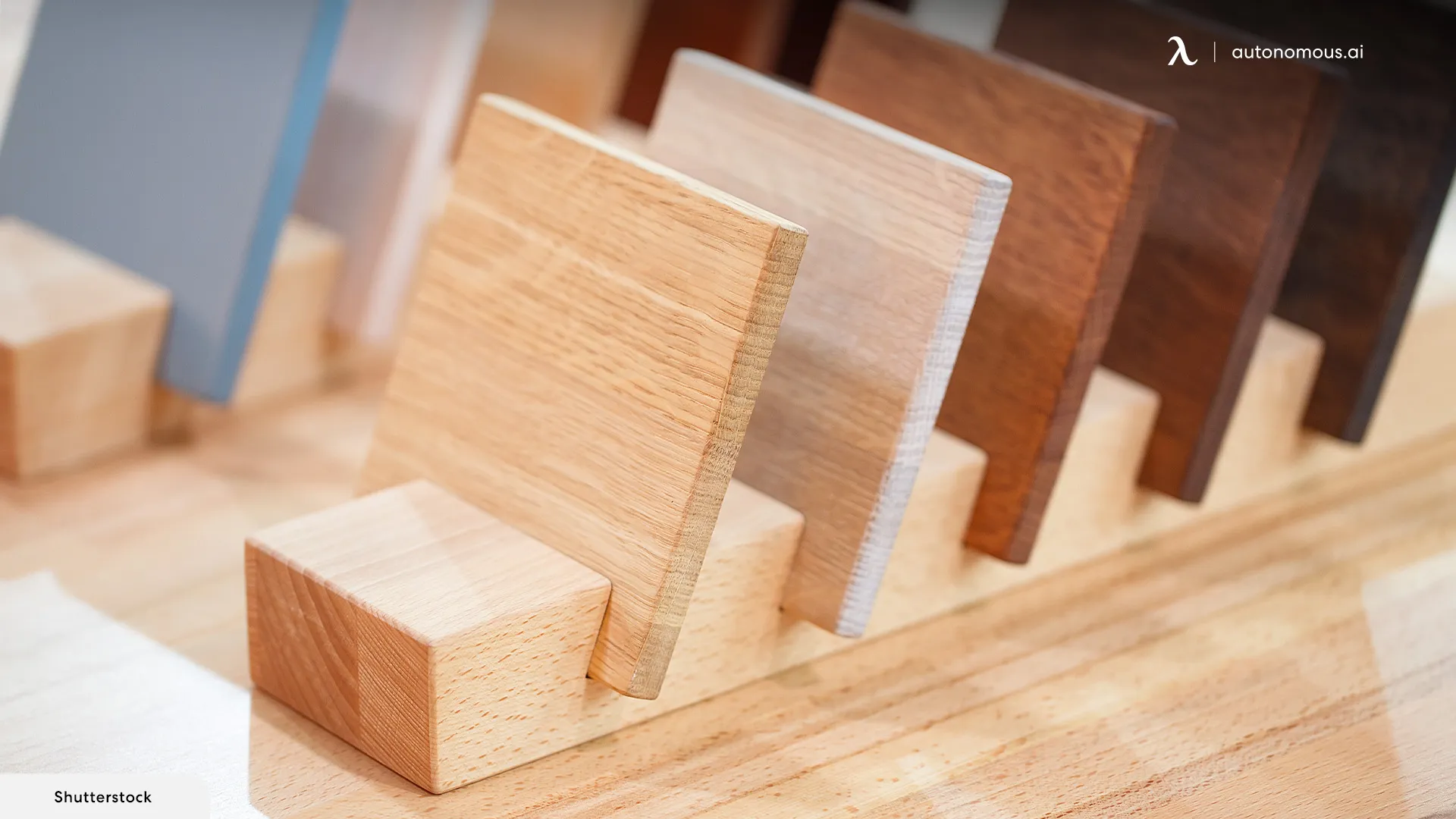
The Pros and Cons of Wood Desk Top
Wood is the only aesthetic that never goes out of style. When it comes to the best desk top material, a wood desk top wins more often than not. However, if you’re not a pro at figuring out the little things and knowing which wood desk top to choose, we’ll help you with the good and the bad.
Let’s break it down, shall we? What exactly are the things you should be observing when buying furniture which lasts well and doesn’t require reinvestment? Here are the pros and cons of getting a wood desk top and wood furniture in general.
Pros of Wood Desk Top
- Durability: Wood is an extremely durable material that can withstand quite a bit of abuse. So if you’re someone who will be dumping things on your desktop, have a lot of things moving around on it, or just looking for something that lasts you a good while, we recommend going with wood for your desk. Pretty much all wood materials in the industry are classified as tough, with the ability to yield high-quality furniture.
- Easy to maintain: Maintenance is very low when it comes to wooden furniture. A polished, solid wood desk top only needs a duster swept over it and it’ll be good as gold.
- Value for money: Didn’t expect this in the pros? It definitely belongs here. When getting wooden furniture, you might get taken back at how expensive it can be. However, nothing gives you as good of a value for money as wood does. In terms of charm and sustainability, wood is the best desk top material.
- Multi-faceted: Your home/office space can be modern or antique and you wouldn’t need to change a thing if you’re getting a wood desk top table. The options available are nearly endless, and in fact you might find wood to be the number one choice amongst all options of desk table tops.
Cons of Wood Desk Top
- Warping: Temperature conditions, UV light and humidity can affect the condition of wood. However, in an indoor setting, polished wood is rarely affected by these conditions.
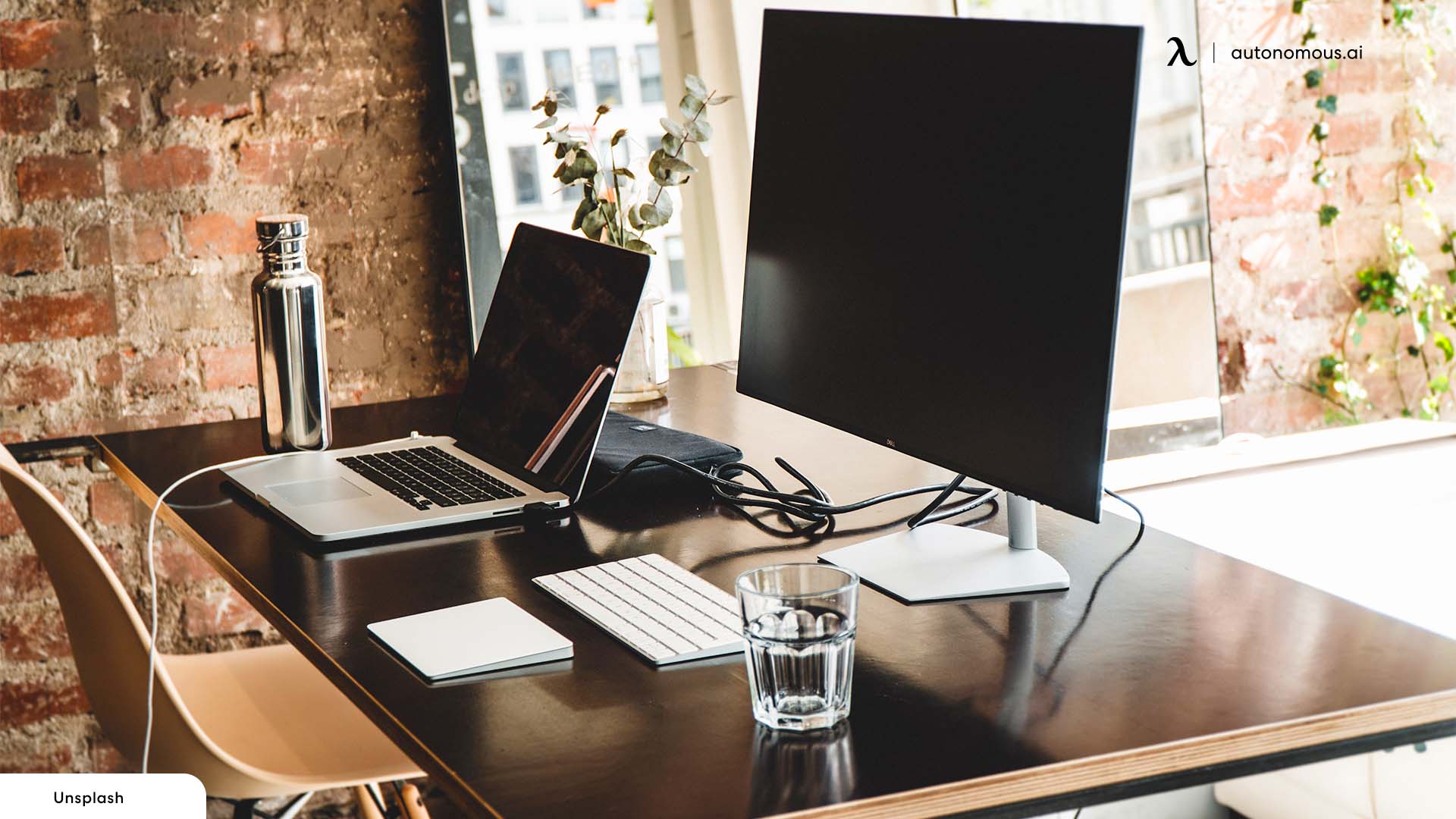
So Which One?
Now that you’re decided on going with a wood desk top, you have access to a wide range of options. To help narrow it down, let’s discuss two of the most common kinds of desk table tops.
- White oak desk top: White oak is a beautiful and neutral surface when it comes to a wooden desk top. The light and dark grains and textured body make this table top stand out. Oak is also one of the sturdiest materials out there which makes it a strong contender for best wood for desk top be it for office or for your dining table.
- Bamboo desk top: Bamboo is classified as one of the most sustainable materials in the world. That’s not all though. A fact you wouldn’t believe is that bamboo is around 2-3 times stronger than timber. Though technically not a wood, these positive aspects make it a strong and rather modern choice for the best desk top material category.
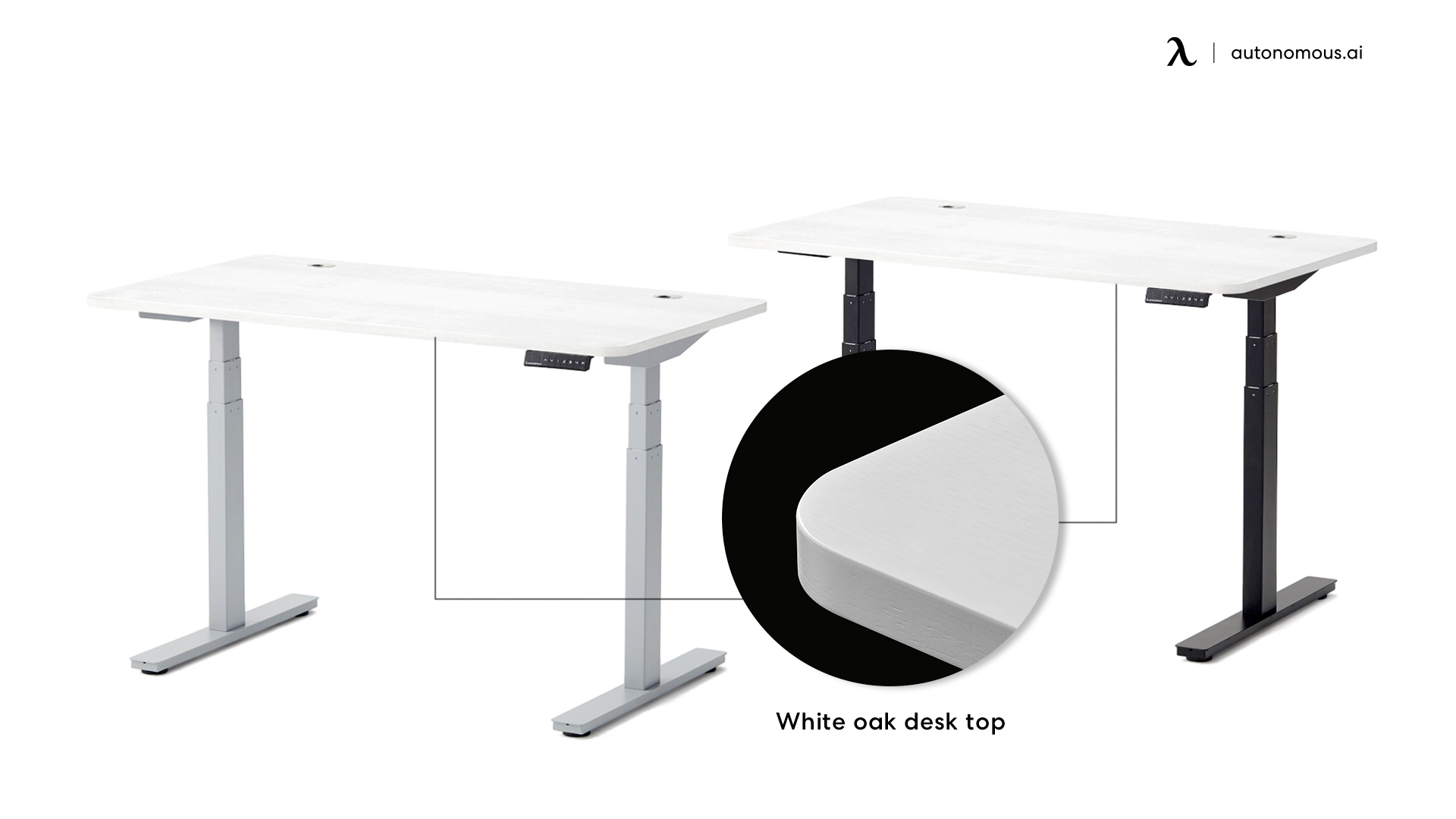
What Not to Do
When you’re investing in furniture you have to keep certain guidelines in mind. Do not rush into your choice of a wood for desk top just because you want to buy the best desk top material. Go through the different options available and the pros and cons of each carefully, before making an informed decision.
Other Options?
If you want to go with a wood finish and are unwilling to invest in solid wood (in this economy), worry not. There are substitutes for a solid wood desk top, that give you the same feel and cost a lot less. Forefront in those options are MDF and plywood.
MDF
- Cheaper than plywood, despite being dense, it’s price is lower.
- Weighs more than plywood, can be difficult to manage
- Easy to cut. If things need to be specific, MDF is easier to manage.
Plywood
- Looks more like real wood, has more of a natural appearance.
- Weighs less, therefore ideal for lifting and holding.
- Stronger. Plywood is less prone to warping and is one of the best desk top material.
Doesn’t Matter if it’s Black or White
A cost-effective model of a white desk top or a black table top for all employees adds a chic look to the office. Minimalist black and white office spaces are pleasing to the eye and keep employees attentive in comparison to deeper snooze-inducing colors and furniture. Remember, the vibe your working space gives off is directly linked to the kind of employees you will attract and ultimately keep.
A black table top has plenty of obvious advantages, the first one being its savvy look. Nothing beats the formality of a black table top. Depending on the work you do it also has lesser chances of looking grimy. You can adjust your furniture around it to give your personal space more depth and integrity.
A white desk top on the other hand, gives a look of openness and space around your workstation. It is your playing field for arrangement but you do not need to move around a lot of furniture since a white desk top pretty much goes with everything. It also has a very crisp and executive feel to it.
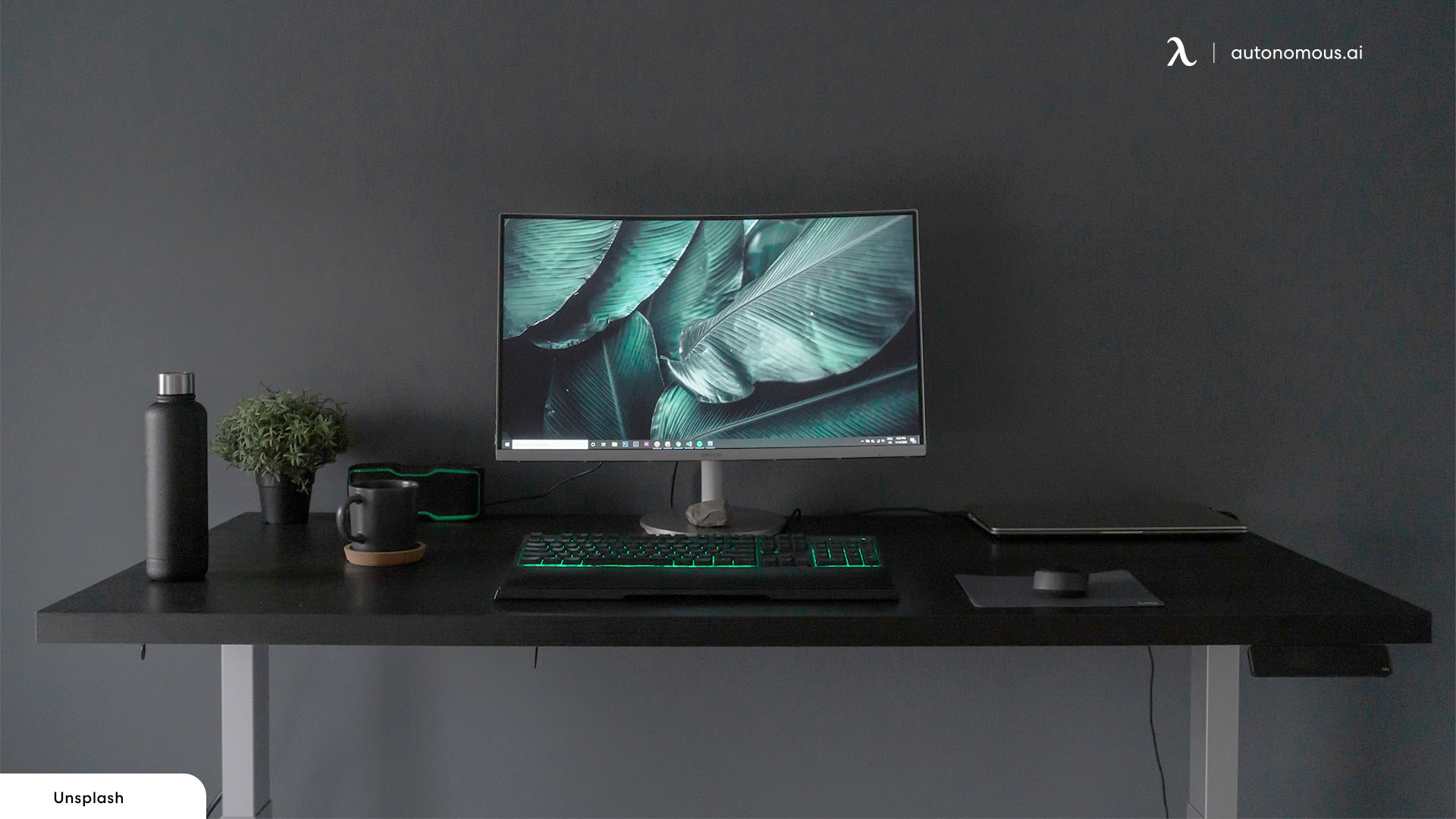
Sorting Your Surface Scenario: Autonomous
Autonomous is dedicated to making sure you choose the best furniture, and particularly that which is custom-suited to your needs.
For this reason, the Autonomous guide for wood desk tops is curated while keeping every aspect of the wood surface in mind. Whether your first priority is aesthetics, durability and strength, or the feel of a wood desk top, autonomous has all the options for you.
While there are many kinds of wood to consider, the unique aspects of some are described in this guide to further help anyone looking to make a quick and correct decision.
Final Thoughts
While there are many types of wood, for your desktop, use lightweight wood like MDF which serves the purpose very well. Oak and Birch may be good for tables that don't have to be raised or lowered. Walnut wood top will magnify a natural desktop.
Spread the word
.svg)


